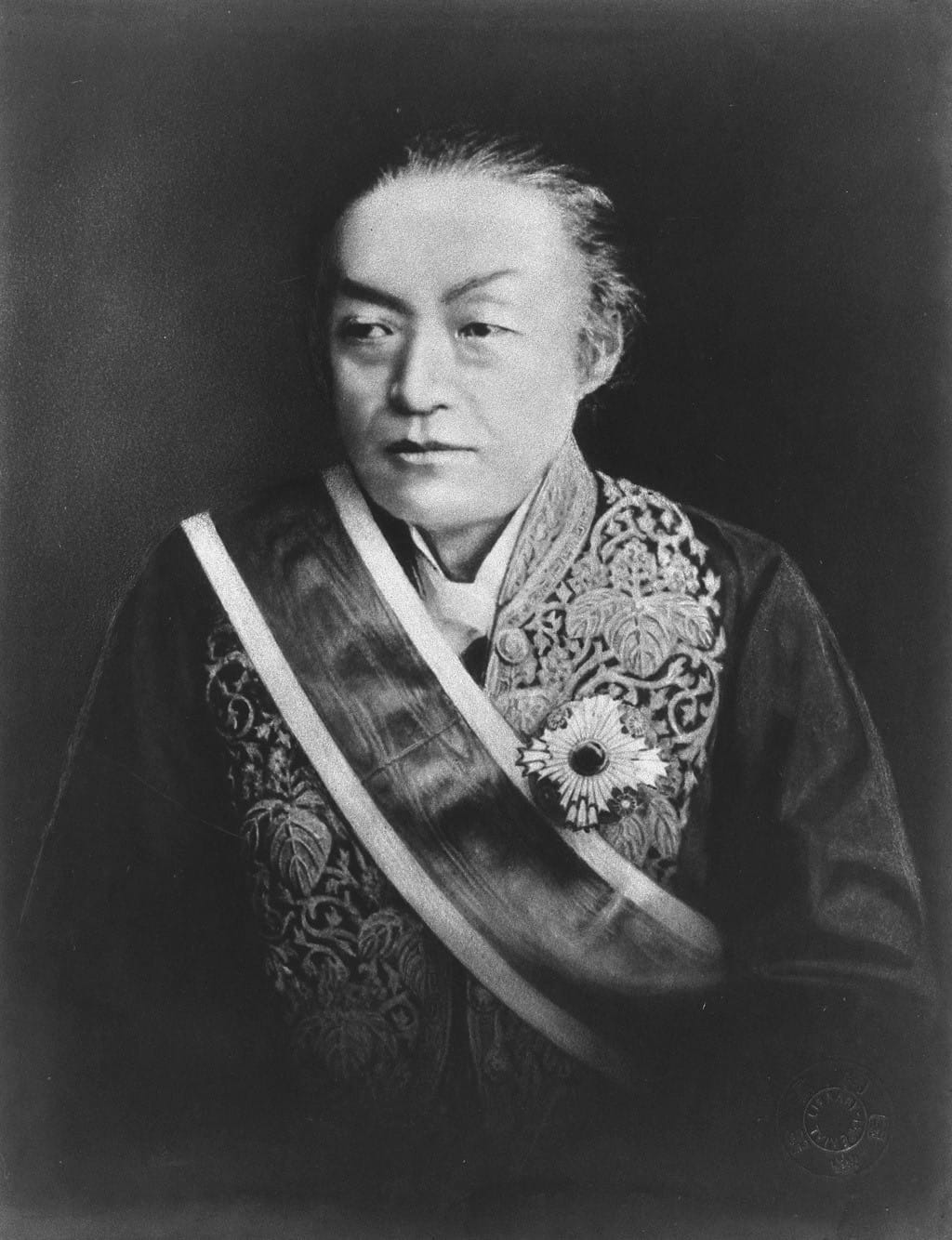
Iwakura Tomomi
Iwakura Tomomi (岩倉 具視, October 26, 1825 – July 20, 1883) was a Japanese statesman during the Bakumatsu and Meiji period. He was one of the leading figures of the Meiji Restoration, which saw Japan’s transition from feudalism to modernism.
Born to a noble family, he was adopted by the influential Iwakura family. By 1858 he was an advisor to Emperor Kōmei, but was exiled from the royal court from 1862 to 1867 for his moderation. After release, he became the liaison between the court and the anti-Tokugawa movement. He played a central role in the new Meiji government after 1868. He successfully opposed aggressive policies in Korea in the crisis of 1873, and was nearly assassinated by his enemies.
He led the 50-member Iwakura Mission for 18 months in Europe and America, studying modern institutions, technology, and diplomacy. The Mission promoted many key reforms that quickly modernized Japan. He promoted a strong imperial system along Western lines, and played a central role in creating financial institutions for the nation.
The 500 Yen banknote issued by the Bank of Japan carried his portrait.
More Details
- Other Names :AIwakura Tomomi,Ivakura Tomomi,Iwakura Tomomi,Tomomi Iwakura,Tomoni Iwakura,Івакура Томомі,Ивакура Томоми,איװאַקוראַ טאָמאָמי,إيواكورا تومومي,ایواکورا تومومی,ઇવાકુરા ટોમોમી,อิวากูระ โทโมมิ,岩倉具視,이와쿠라 도모미
- WikiPedia Page
- Country : Japan
- Born on 20 July